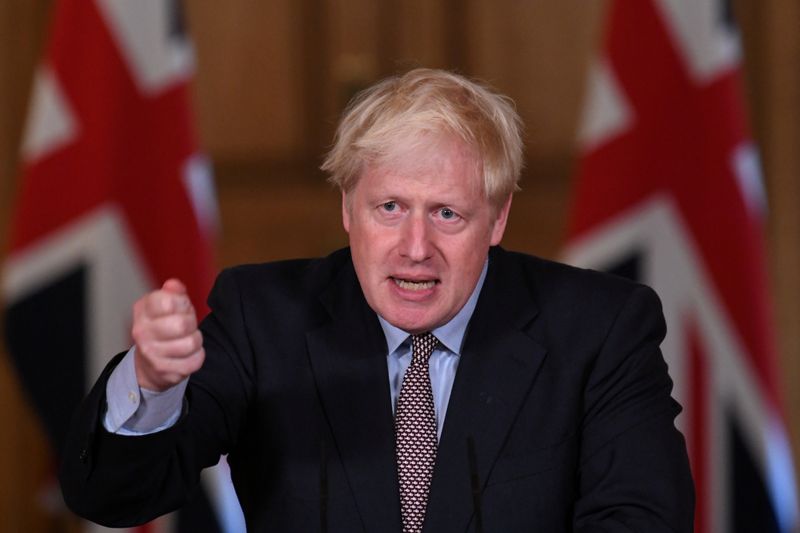By Guy Faulconbridge and Elizabeth Piper
LONDON (Reuters) - The European Union on Monday ramped up pressure on Prime Minister Boris Johnson to step back from breaking the Brexit divorce treaty, delaying a key decision on London's euro clearing just as he faces a rebellion in the British parliament.
The European Union says Johnson's plan would wreck trade talks and propel the United Kingdom towards a messy Brexit while former British leaders have warned that breaking the law is a step too far that will tarnish the country's image.
The House of Commons is due to vote on moving the Internal Market Bill, which the EU has demanded London scrap by the end of the month, to its next amendment stage after a debate that Johnson will introduce.
As Johnson prepared to try to persuade lawmakers that his plan to explicitly break international law was worth supporting, a derivatives industry source said the European Commission had delayed a decision on euro clearing.
Johnson, who has a majority of 80 in the lower house of parliament, faces a growing revolt. All of Britain's living former prime ministers have expressed concern about his plan as have many senior figures in his Conservative Party.
"No British minister should solemnly undertake to observe treaty obligations with his fingers crossed behind his back," Johnson's former Attorney General Geoffrey Cox, who is influential with colleagues, said in The Times newspaper.
The leader of the opposition Labour Party, Keir Starmer, who was self isolating due to coronavirus, said he would oppose a bill that broke international law.
Johnson's plan to explicitly break international law has plunged Brexit back into crisis less than four months before Britain is finally due to leave the EU's orbit at the end of a transition period, and jeopardised trade talks.
The EU has ramped up preparations for a no-deal Brexit, which would be chaotic for business, markets and nearly $1 trillion in annual trade.
WHO BLINKS FIRST?
Conservative lawmaker Rehman Chishti, who was Johnson's special envoy for freedom of religion, quit his role, saying he could not support the bill. "As an MP (lawmaker) for 10yrs & former barrister, values of respecting rule of law & honouring one’s word are dear to me," he tweeted.
British ministers say the bill, which explicitly states that it could be inconsistent with a host of international laws, is intended to clarify ambiguities - particularly over Northern Ireland - and act as a safeguard in case trade talks fall.
But some EU diplomats believe London is playing a game of chicken, inviting the collapse of trade talks to either get the deal it wants or leave without a deal.
The EU says it cannot trust those who break agreements and that if the bill is not effectively scrapped there will be no trade deal to cover everything from car parts to food.

If, as expected, it is passed in its second reading on Monday, there will be four more days of debate on the bill's fine print - lasting into Tuesday of next week.